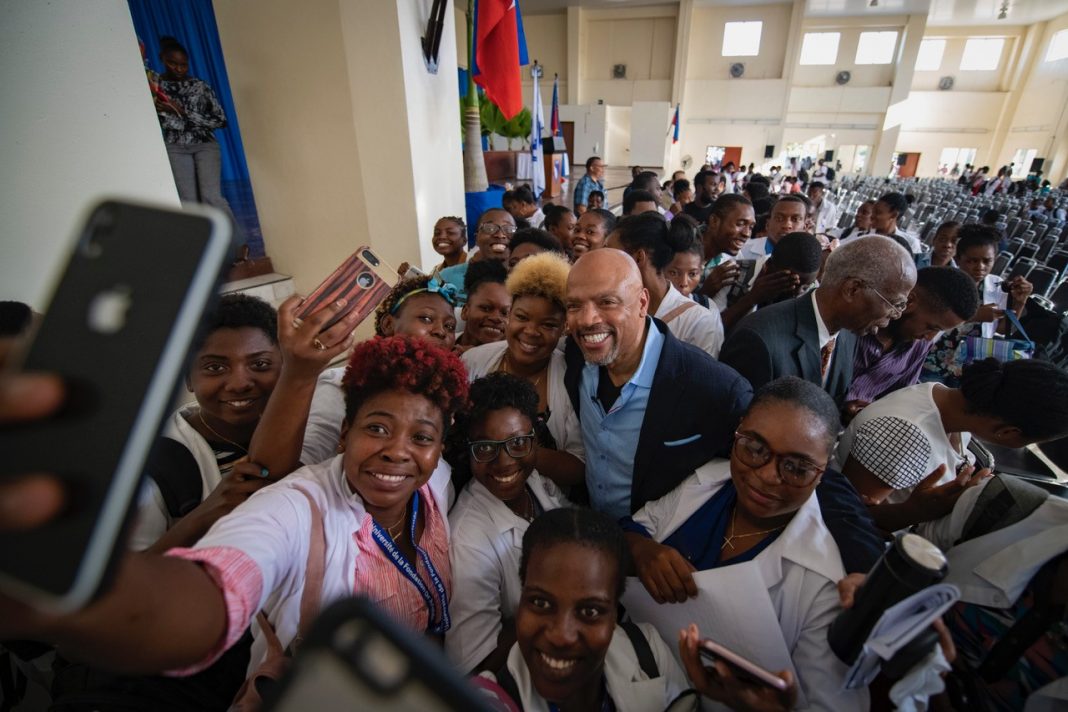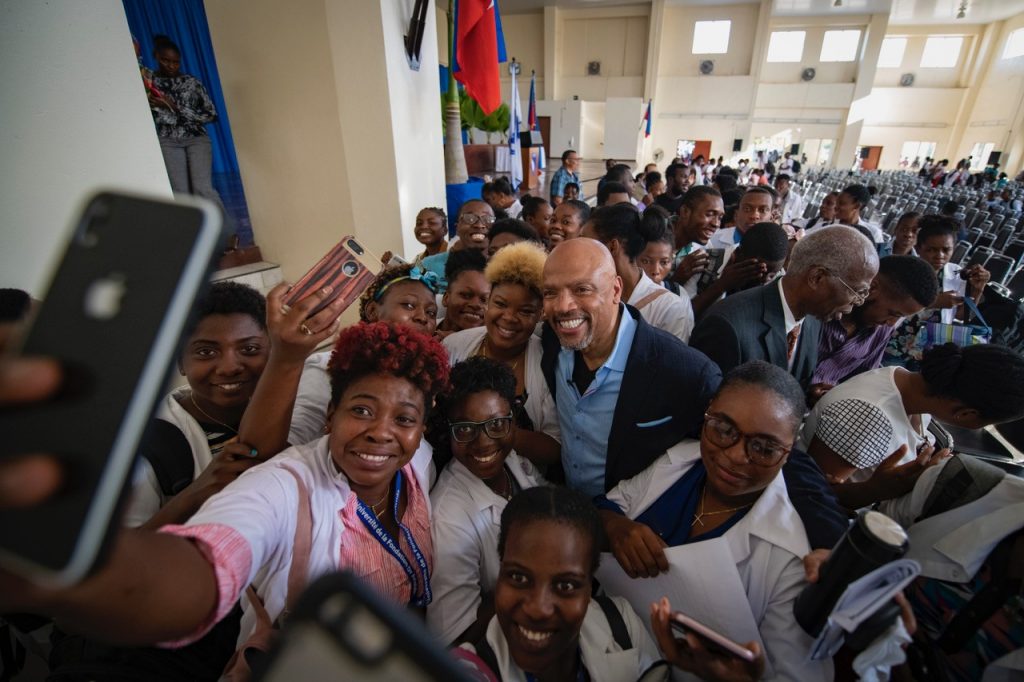

The streets of Haiti were quiet before heavy gunfire filled the air of Port-au-Prince on July 7, 2021. Despite violently disrupting the country’s fragile government, however, the assassination of President Jovenel Moïse did not surprise all Haitians at the University of Miami.
“It was unfortunately bound to happen given the years of struggle and oppression surrounding his presidency,” said Laura Francois, a first generation Haitian-American senior majoring in public health and French.
One critique of Moïse’s regime stemmed from his response to drug and gang violence in the country. When she visited family in Haiti last December, Francois said she witnessed the effects of the regime’s hands-off approach firsthand.
“We were following strict driving schedules and routes just to avoid manifestations and gang violence,” said Francois, who is the president of UM’s Haitian student organization Planet Kreyol.
Dr. Henri Ford, a Haitian-born pediatric surgeon and the dean of the Leonard M. Miller School of Medicine, provided medical support to Haiti after the catastrophic earthquake of 2010 and performed the country’s first-ever successful separation of conjoined twins. Ford said that he feels that the causes and effects of Moïse’s assassination transcend political affiliation.
“Regardless of how anybody felt about Jovenel Moïse, it was a callous act and nobody deserves this type of assassination, especially in your own house in front of your wife and kids,” Ford said.
Moïse’s assassination, though somewhat predictable to some, stood out to Ford for its suddenness and the possible political motivations that spurred the perpetrators.
“I never expected anyone to carry out such a barbaric act on anyone, let alone the president, just because you have a fundamental disagreement on his policies or his approach,” he said.
South Florida is home to the U.S.’s largest Haitian diaspora, with almost 230,000 Haitian immigrants residing in the Florida Metro Area. The community has suffered in the aftermath of Moise’s assassination, with Haitian-American doctor and South Florida resident Christian Emmanuel Sanon among those arrested under suspicion of involvement in the assassination.
Paul Douillon, a Haitian and Cuban American junior studying criminology and music, said that many in the Haitian community have mixed feelings about the assassination.
“I know my parents are really hurt by everything that’s happened,” Douillon said. “And if I’m being honest, to some extent, even a little embarrassed that our country is being seen in some tragic way again.”
“Every time we’re on the news, we are being seen in a traumatic way or for some traumatic event. It’s not very common that we make national news for something positive,” Douillon continued.
Laury B. Roux, a Haitian entrepreneur who currently resides in Port-au-Prince, said she is unsure what to make of the events.
“We woke up to this horrific news about the assassination of the president and the uncertainty, the anger, the hopelessness, it’s just ongoing and we are shocked,” Roux said.
“However unpopular this president was and how difficult the situation was, it’s sad for us to just see even more bloodshed and just more people dying,” she continued.
Since July 20th, Ariel Henry, a Haitian neurosurgeon and politician, has served as the acting president of Haiti and will continue in the role until the country’s September elections. The United States currently grants temporary protected status to Haitian citizens, thereby granting them residency in the U.S. until October 4th, 2021.
Gepsie Metellus, the executive director of the Sant La Haitian Neighborhood Center, an organization that helps Haitian-Americans integrate into South Florida through cultural workshops and seminars, told the Miami Herald that she hopes the Haitian-American community can help support Haiti through its political crisis.
“If Haitian-American elected officials and the rest of the Haitian-American civil leadership can understand how to leverage the power that we hold collectively, I think we can be a significant force in developing U.S.-Haiti policy,” Metellus said.





